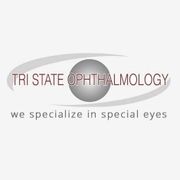
Eye lens implants, also known as intraocular lenses (IOLs), are used to replace the natural lenses in the eyes. During cataract surgery or refractive lens exchange, two similar vision correction procedures, ophthalmologists supplant the lenses to promote clearer eyesight. Traditionally, patients had to use special eyewear to see clearly after these procedures. With IOLs, however, that’s no longer the case. Discover below which type of lens implant may be right for your needs.
Kinds of Intraocular Lenses
1. Toric
If you’ve been diagnosed with astigmatism, it means your cornea has a narrower shape—resembling that of a football—instead of the standard round shape. While this can cause blurred vision, the toric IOL reduces the effect and prevents the need for corrective glasses after cataract surgery.
2. Aspheric
Another variation in eye shape is caused by higher-order aberrations (HOAs). These aberrations slightly alter the shape of the lens, making it aspherical instead of perfectly round, thereby leading to hazy vision. Aspheric IOLs can sharpen eyesight, especially at night.
3. Monofocal
 Presbyopia, or farsightedness, makes it difficult for people to see objects up close. Commonly experienced after 40, this condition causes the lens to become more rigid. Reading may therefore become challenging. Monofocal lenses remain focused to correct presbyopia.
Presbyopia, or farsightedness, makes it difficult for people to see objects up close. Commonly experienced after 40, this condition causes the lens to become more rigid. Reading may therefore become challenging. Monofocal lenses remain focused to correct presbyopia.
4. Multifocal
If you have difficulty seeing objects at various distances, you may have worn bifocal lenses prior to your cataract surgery. However, multifocal lens implants eliminate the need for these glasses. Like traditional bifocals, they may require an adjustment period.
5. Accommodating
Accommodating lenses promote sharpness at various distances. While they may not support up-close eyesight to the degree that multifocal lenses do, they’re known for especially clear vision farther away. This makes them an excellent choice for people who have struggled with driving or similar activities.
If you’re considering cataract surgery or another eye procedure, turn to Tri-State Ophthalmology in Ashland, KY. Specializing in eye surgery and treatments for conditions such as glaucoma, age-related macular degeneration, and diabetic retinopathy, these specialists offer solutions to help patients see clearly and manage eye diseases. Explore their full list of services online, and call (606) 324-2451 to check appointment availability.
About the Business
Have a question? Ask the experts!
Send your question

